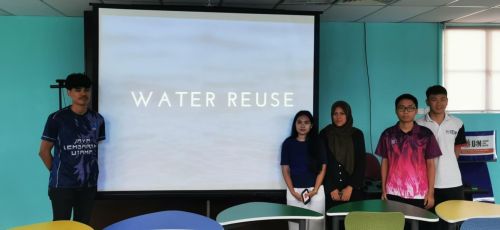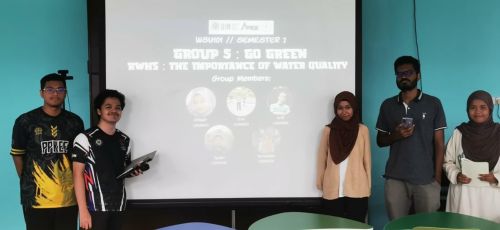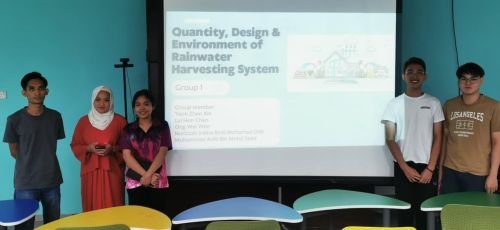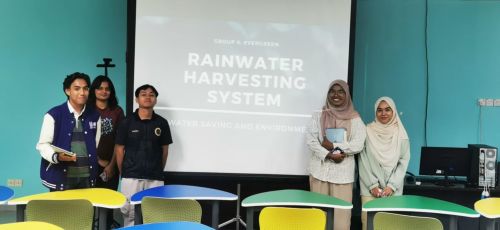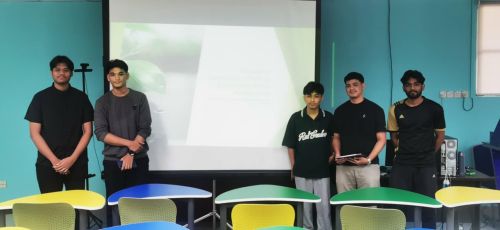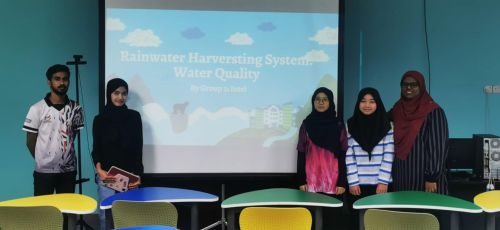WSU 101 Sustainability:
Issues, Challenges & Prospects Sustainable Solution Project 2024
Water is considered a vital resource for global sustainability and economic growth. Nevertheless, global climate change, rapid urbanization, and environmental degradation are accelerating the depletion of clean water resources at an alarming pace in the twenty-first century. In response, Rainwater Harvesting Systems (RWHS) emerge as a promising alternative water source.
Malaysia, endowed with high annual rainfall and substantial domestic water consumption stands poised to leverage rainwater harvesting for both potable and non-potable uses. Yet, the efficacy of harvested rainwater hinges on meeting acceptable water quality standards. The quality of harvested and stored rainwater can be influenced by topography, weather, and sources of pollution. Therefore, treatment and regular monitoring are required as poor water quality can impose health risks due to the existence of chemical, physical and microbiological contaminants. With the RWHS treatment system, the harvested rainwater can be converted into clean water as an alternative water supply for various domestic applications.
It is noted that RWHS have many benefits related to the economy, the environment, technology, and society. With the cost-effective, sustainable, and socially acceptable application of RWHS, Sustainable Development Goals (SDGs), especially SDG 6 (Clean Water and Sanitation) and SDG 13 (Climate Actions), can be achieved with the benefits gained from the environmental, economic and social aspects.
Part 1:
Students are required to review the outcomes from the documents pack based on one of the following aspects in a technical report:
• Water saving and environment
• Water quality
• Treatment technology
• Water reuse
Part 2:
Students are required to prepare a video to promote the RWHS based on the outcomes from the technical report:

